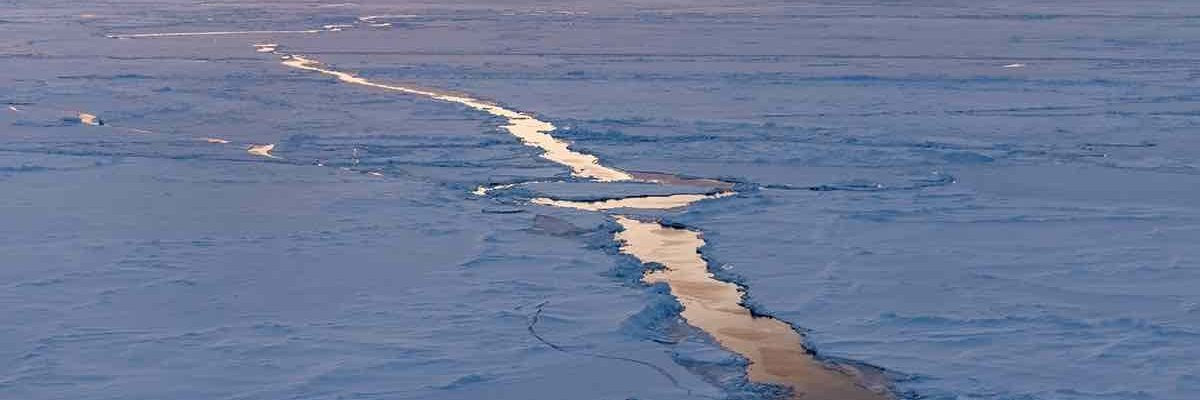
The CRiceS project, or Climate relevant interactions and feedbacks: the key role of sea ice and snow in the polar and global climate system, will contribute to a more precise understanding of the ocean-ice-snow-atmosphere system to deliver improved models that describe polar and global climate.
Source: press release
The Arctic and Antarctic regions are experiencing rapid and unprecedented changes due to polar and global climate change, clearly caused by anthropogenic activities. 21st century projections show substantial decrease of sea ice in both Arctic and Antarctic, which are expected to impact people in the Arctic and also society beyond polar regions.
The CRiceS project brings together 21 international research teams, from Europe, Canada, South Africa, India and Russia, at the forefront of polar and global climate research. The CRiceS research project aims to enhance the modelling of the impacts that these regions have for the global climate.
The CMCC Foundation Euro-Mediterranean Center of Climate Change (CMCC) is partner of the project, CMCC scientist Dorotea Iovino being CMCC Scientific Leader of the project.
The new project involves an exceptionally broad team of researchers to tackle the role of polar processes within the climate system including climate physics, chemistry, and biology. “We believe that our integrated approach, including experts on both modeling and observations helps us to understand, not only the polar processes, but also how the polar systems are linked to global climate and society”, states Risto Makkonen, coordinator of the project and research professor at the Finnish Meteorological Institute (FMI).
The CRiceS project focuses on improving model predictions of the role of polar processes in the climate system that consists of the oceans, ice and snow cover, and the atmosphere. It is crucial to understand the role of the polar processes, such as feedback loops, in polar and global climate. One of the main ways scientists can improve our understanding of environmental change is to combine knowledge from different disciplines in a coordinated way.
“Within CRiceS we bring together world leading expertise from the fields of sea ice physics, atmospheric aerosols and clouds, and sea ice biogeochemistry in order to better understand how these systems operate together and what to expect in a future with reduced sea ice.”, states Jennie Thomas, scientific coordinator of the project and senior research scientist at CNRS.
CRiceS will enhance climate models and improve how they represent polar ocean-atmosphere interactions with the goal of delivering improved predictions of polar and global climate change. “After all, global climate models are the key tool for predicting future changes in polar and global climate systems. Improved models would be capable of simulating detailed processes and especially interactions and coupling of polar systems, such as ocean, sea ice and atmosphere”, emphasizes Risto Makkonen.
Research in support of resilient future and climate action
The project will receive 8 M€ funding from the EU and will be carried out during 2021–2025. The EU’s H2020 research programme funds projects that support the transformation to a low-carbon, resilient future and the climate action that supports the Paris climate agreement.
The EU has built an extensive role in polar research by coordinating joint Arctic and Antarctic collaboration initiatives and funding about 200 M€ on polar research projects in Horizon 2020.
More information
Coordinator, Research Professor Risto Makkonen, Finnish Meteorological Institute, [email protected]
Scientific Coordinator Jennie Thomas, L’Institut des Géosciences de l’Environnement/ French National Centre for Scientific Research, [email protected]
You can also follow the CRiceS project and its current events in Twitter
CRiceS partner institutions are Finnish Meteorological Institute, Centre national de la recherche scientifique (France), Center for International Climate Research (Norway), University of Stockholm (Sweden), University of Bergen (Norway), Finnish Environment Institute (Finland), University of Helsinki (Finland), Institut de Ciències del Mar (Spain), Norwegian Polar Institute (Norway), British Antarctic Survey (UK), University of Cape Town (South Africa), University College London (UK), École polytechnique fédérale de Lausanne (Switzerland), Euro-Mediterranean Center on Climate Change (Italy), University of Groningen (Netherlands), University of Bremen (Germany), Alfred Wegener Insitute (Germany), University of Calgary (Canada), University of Victoria (Canada), National Centre for Polar and Ocean Research (India), and Institute of Computational Mathematics and Mathematical Geophysics (Russia).


